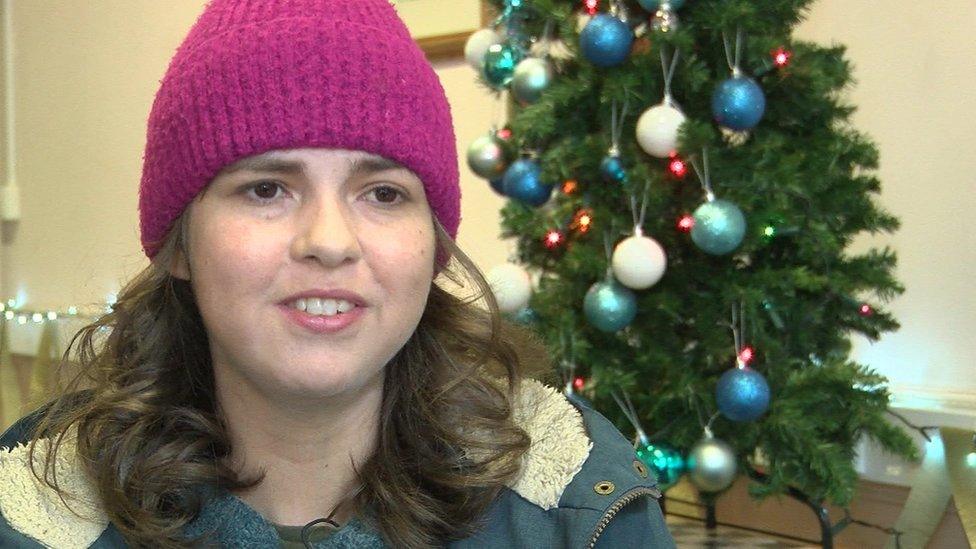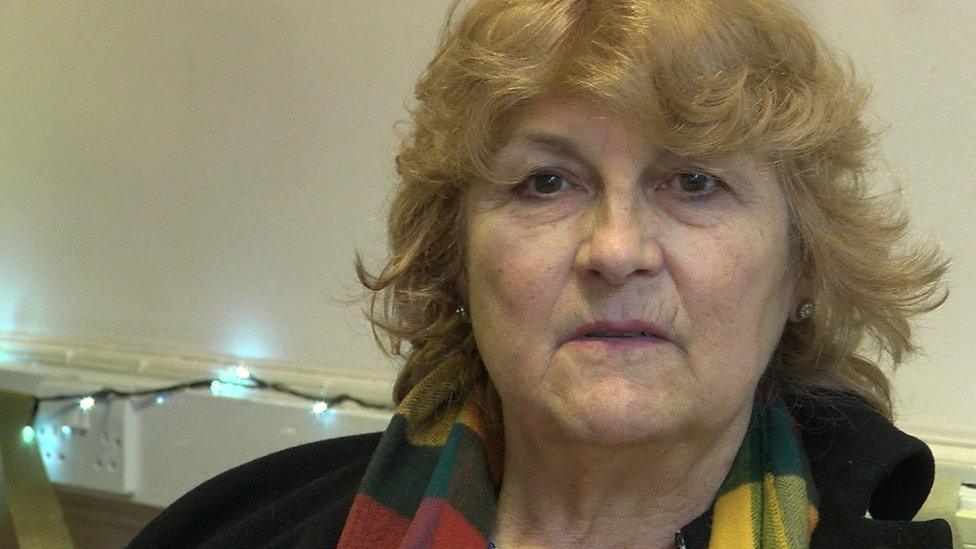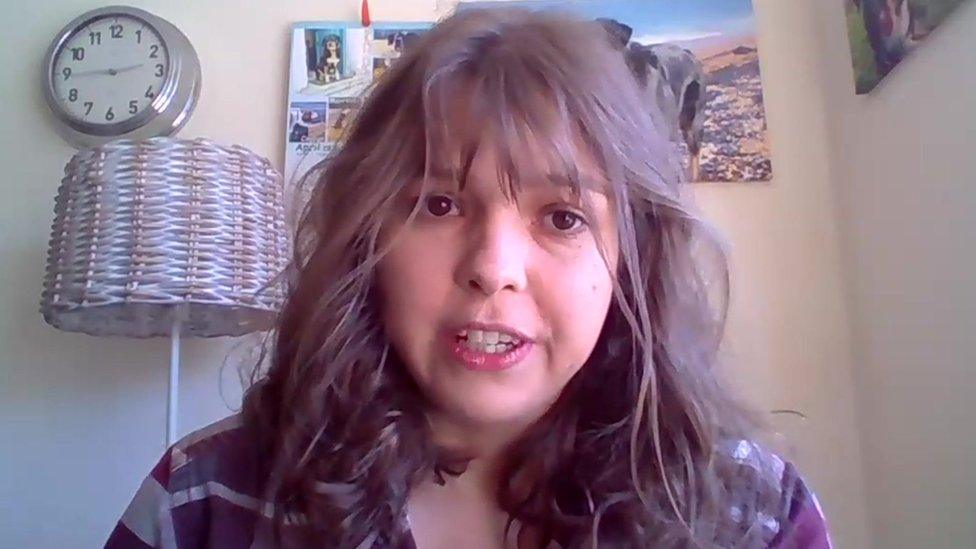Devon woman gets liver transplant after two-year wait
- Published

Sarah Meredith is still receiving support from the transplant hospital
A woman is celebrating a "new chance at life" after a liver transplant she waited two years for.
Sarah Meredith, 30, from Totnes, Devon, moved to Cambridgeshire to be close to a specialist transplant unit.
The NHS Blood and Transplant service said the average wait for liver transplants for adults was 65 days., external
The service said there was a "shortage of organs" and livers were allocated "to maximise the chances of survival for those who are waiting".
Ms Meredith, who received the donated organ from someone in their 70s in September, said she started to feel better instantly after the operation at Addenbrooke's Hospital.
"It gives people a massive opportunity and a new chance at life, but you've still got things that need maintenance," said Ms Meredith who is receiving support from the hospital.
"You can't go skiing immediately, but it's progress which is really good.
"There are so many people to thank, it really does take a village."

Sarah Meredith's mother, Cathy, said waiting for a transplant had been an "emotional rollercoaster"
Her mother Cathy said: "Without a liver transplant Sarah was going to die, it was a simple as that.
"It's been a real emotional rollercoaster."
She said the family had a last-minute panic when they discovered the liver Ms Meredith was getting had been donated by someone in their 70s.
"They told us the night before the operation and we were wondering whether we should actually go for it but we really had to, as we didn't know how much longer Sarah could wait," said her mother.
A spokesperson for the NHS Blood and Transplant Service said more than 7,300 people across the UK were waiting for transplants, including 673 who were waiting for a liver.
"Yet only 1% of people currently die in circumstances where organ donation is possible and it is more likely that a person will require a transplant during their lifetime than become an organ donor," they said.
"This means there is a shortage of organs for those who are waiting."With only a short time to successfully transplant organs, the allocation systems need to quickly identify the best possible match for each organ which is offered for donation."
An algorithm to allocate livers "looks to maximise the chances of survival for those who are waiting", they said."The more people who agree to support donation, the better the chances are for these patients who are awaiting these life-saving calls."

Follow BBC Devon on X (formerly Twitter), external, Facebook, external and Instagram, external. Send your story ideas to spotlight@bbc.co.uk, external.
Related topics
- Published20 April 2023
